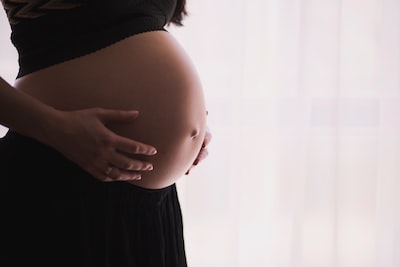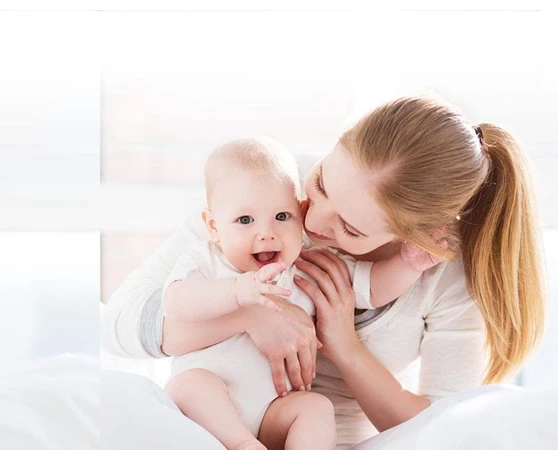What İs Early Menopause And Its Effects On Pregnancy?
If you’re wondering what early menopause is, it’s a situation where a woman experiences menopause at an earlier age than the average age of around 51 years old. So if a woman reaches menopause before she’s 40 years old, then she is considered to have early menopause. Pregnancy During Early Menopause can be a challenge since the ovaries are no longer producing eggs and the estrogen levels drop significantly. This can make it harder to conceive and maintain a healthy pregnancy.
Women who have early menopause may wonder if they can still get pregnant. While it may be more challenging, it is still possible to conceive with the help of fertility treatments or with the use of donor eggs. However, challenges of pregnancy during early menopause can arise due to the lack of estrogen which can lead to complications such as low birth weight and premature birth.
| Fertility Treatments and Options for Women with Early Menopause | The Importance of Seeking Medical Advice When Planning a Pregnancy with Early Menopause |
|---|---|
|
|
In conclusion, early menopause can have effects on pregnancy and fertility, making it important for women to seek medical advice if they plan on becoming pregnant. Make sure to discuss the risks and options with a healthcare provider to increase the chances of a healthy pregnancy and baby.
Can Women With Early Menopause Still Get Pregnant?
Early menopause affects women in different ways, and one of the biggest concerns is how it affects their pregnancy plans. Women with early menopause often wonder if they can still get pregnant, and the answer is not a simple yes or no. While it may be more challenging to conceive, it is still possible.
If you are experiencing early menopause, there are some factors that you should consider before trying to conceive. Age is one of the most important factors, as the older you are, the more difficult it will be to conceive. Additionally, women with early menopause may have other health conditions that could affect their ability to conceive, such as polycystic ovary syndrome or endometriosis.
One option for women with early menopause who want to conceive is to use assisted reproductive technologies, such as in-vitro fertilization. IVF involves combining eggs and sperm in a laboratory and then transferring the embryo to the uterus. This method has a higher success rate than natural conception, but it can be expensive and emotionally taxing.
| Tips for Women Trying to Conceive During Early Menopause | |
|---|---|
| 1. | Consult with a doctor: It is essential to consult with a doctor that can help you assess your fertility and assist you in conceiving. |
| 2. | Consider assisted reproductive technologies: IVF and other fertility treatments can increase your chances of conceiving, but they can be expensive and emotionally taxing. |
| 3. | Maintain a healthy lifestyle: A healthy lifestyle can increase your chances of conceiving. Eat a nutritious diet, exercise regularly, and avoid smoking and excessive alcohol consumption. |
Women with early menopause must seek medical advice when planning a pregnancy. Your doctor can help you assess your fertility and recommend the best course of action based on your health and medical history.
In conclusion, women with early menopause can still get pregnant, but it requires careful planning and consideration. With the help of assisted reproductive technologies and the guidance of a medical professional, women with early menopause can achieve their dream of motherhood.
Challenges Of Pregnancy During Early Menopause
Challenges Of Pregnancy During Early Menopause
With women waiting longer to have children, early menopause is becoming more common. Women in their late 30s or early 40s who are experiencing early menopause may experience emotional challenges as well as physical ones if they decide to become pregnant. One of the main challenges of pregnancy during early menopause is that women in this age group may have a harder time conceiving because of the diminished ovarian reserve. However, with the help of modern medical options, women can still achieve a healthy pregnancy.
Medical Options
There are several medical options available to women who are facing pregnancy during early menopause. One option is in vitro fertilization (IVF), which involves stimulating the ovaries with hormones to retrieve eggs for fertilization outside of the body. Another option is using donated eggs from younger women or using a surrogate mother to carry the pregnancy. However, it is essential to consult with a medical professional to determine which option is the best for you.
Potential Risks
| Potential Risks during Pregnancy During Early Menopause |
|---|
| Higher risk of miscarriage |
| Increased risk of gestational diabetes or hypertension |
| Greater chance of preterm delivery and low birth weight |
Conclusion
Becoming pregnant during early menopause may present significant challenges and risks. However, with modern medical technology, women in this situation can still achieve healthy pregnancies. The importance of seeking medical advice cannot be overstated. It is essential to consult with a medical professional before attempting to conceive and throughout the pregnancy to ensure a healthy outcome for both mother and baby.
Fertility Treatments And Options For Women With Early Menopause
Early menopause can be a challenging experience, especially for women who dream of having children. Menopause is defined as the cessation of menstrual cycles for 12 consecutive months, but early menopause occurs before the age of 40. Women who experience early menopause have a harder time getting pregnant, as the supply of healthy eggs decreases. However, there are fertility treatments and options available to help women build a family even after early menopause.
If you are experiencing early menopause and want to get pregnant, there are several fertility treatments available. One option is in vitro fertilization (IVF), which involves fertilizing eggs outside the body and then placing them back into the uterus. With IVF, women can use donor eggs or their frozen eggs if they have previously undergone egg freezing. This method has success rates for women even after early menopause.
Another option is donor eggs, which can be a solution for women who do not produce healthy eggs. This process involves using the eggs of a younger donor, which are then fertilized with the sperm of the woman’s partner or a sperm donor. Though it can be a difficult decision, many women have successfully had a baby using donor eggs.
| Fertility Treatments and Options for Women with Early Menopause |
|---|
| In vitro fertilization (IVF) |
| Donor eggs |
| Surrogacy |
| Adoption |
Surrogacy is another possibility for women experiencing early menopause. This process involves using a surrogate mother to carry the baby to term. Surrogacy can be a complex and expensive process, however, it has a relatively high success rate. Finally, adoption is another great option for women who want to become parents, regardless of fertility issues.
Most importantly, it is essential to consult with a medical professional before attempting to get pregnant while experiencing early menopause. Your doctor will be able to guide the best fertility treatments and options for your specific situation. Determining the right course of action with a medical professional can help women feel more confident and relieve some of the stress of becoming a parent after early menopause.
The Importance Of Seeking Medical Advice When Planning A Pregnancy With Early Menopause
Early menopause can be a daunting experience for women who still want to have children. During early menopause, which typically occurs between the ages of 40 and 45, a woman’s ovaries stop producing eggs, which makes it highly unlikely to get pregnant. Pregnancy during early menopause is rare but not impossible. The chances of having a successful pregnancy during early menopause are higher for women who have frozen their eggs before entering menopause.
While some women may try to conceive naturally during early menopause, it is important to seek medical advice before attempting to do so. Women who experience early menopause may have underlying health conditions such as autoimmune disorders, thyroid, or cardiovascular diseases, which may affect their overall health during pregnancy. Seeking medical advice before planning a pregnancy is crucial as it can help women manage any underlying conditions that could compromise their pregnancy.
| Fertility Treatments for Pregnancy During Early Menopause | |
|---|---|
| In vitro fertilization (IVF) | IVF involves extracting eggs from the ovaries and fertilizing them with sperm in a laboratory. The fertilized eggs are then transferred to the uterus, increasing the chances of pregnancy. |
| Egg donation | In some cases, using donated eggs may be an option for women who have premature ovarian failure. Donor eggs are fertilized in a lab, and the resulting embryos are implanted in the uterus. |
| Surrogacy | Surrogacy involves using a gestational carrier to carry the pregnancy if the woman with early menopause cannot carry the baby herself. |
When planning a pregnancy, women with early menopause may need to consider fertility treatments such as in vitro fertilization (IVF), egg donation, or surrogacy. Consulting a medical professional is necessary to determine the best treatment option for each individual. Seeking medical advice helps women manage their health and increases their chances of having a healthy pregnancy.
Frequently Asked Questions
What is early menopause?
Early menopause, also known as premature ovarian failure, is when a woman’s ovaries stop functioning normally before the age of 40.
What are the effects of early menopause on pregnancy?
Women with early menopause may have more difficulty getting pregnant and may have an increased risk of complications during pregnancy, such as gestational diabetes and high blood pressure.
Can women with early menopause still get pregnant?
While it may be more difficult for women with early menopause to get pregnant naturally, it is still possible with the help of fertility treatments such as in vitro fertilization (IVF) and donor eggs.
What are the challenges of pregnancy during early menopause?
Women with early menopause may face challenges such as a higher risk of miscarriage and premature birth, as well as a higher risk of certain birth defects in their babies.
What fertility treatments and options are available for women with early menopause?
Fertility treatments such as IVF and donor eggs may be options for women with early menopause. Additionally, hormone replacement therapy (HRT) may help improve the chances of pregnancy.
Why is it important to seek medical advice when planning a pregnancy with early menopause?
It is important to seek medical advice because a doctor can evaluate a woman’s situation and make recommendations for fertility treatments or other interventions that may improve the chances of a successful pregnancy.
What are some lifestyle changes that can improve the chances of pregnancy for women with early menopause?
Healthy lifestyle changes such as maintaining a healthy weight, quitting smoking, and reducing alcohol consumption can help improve the chances of pregnancy for women with early menopause.



